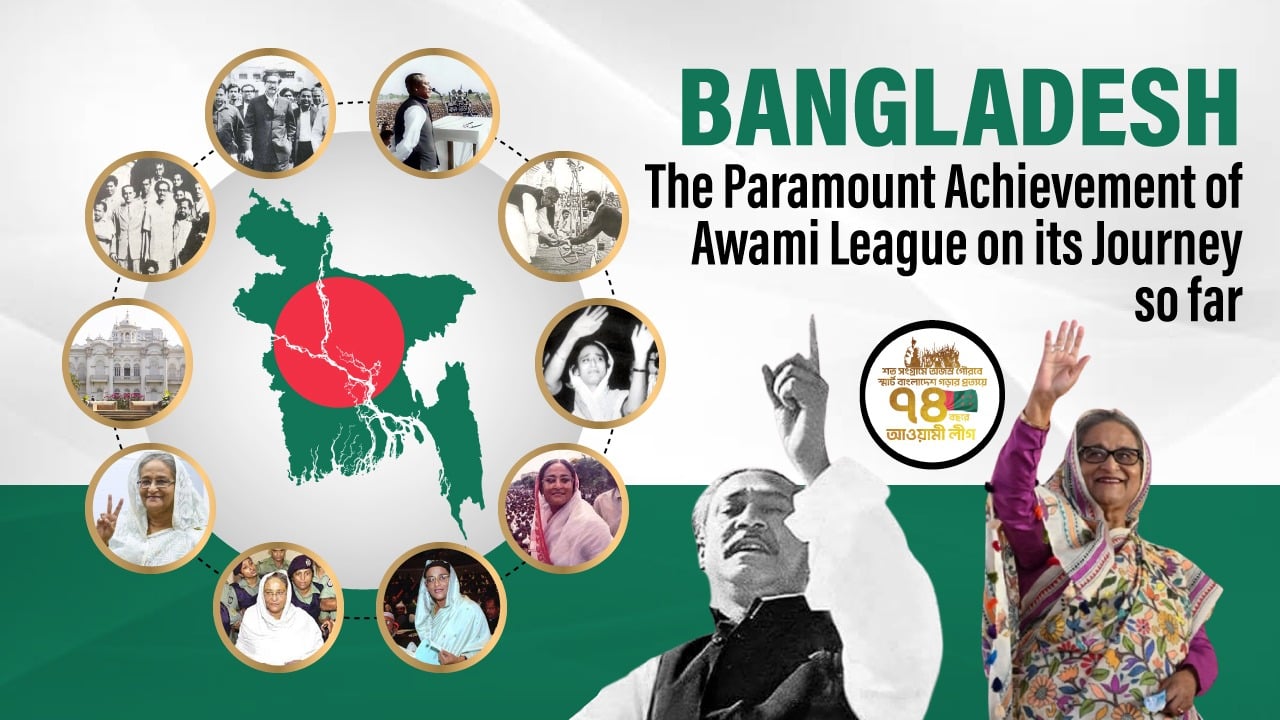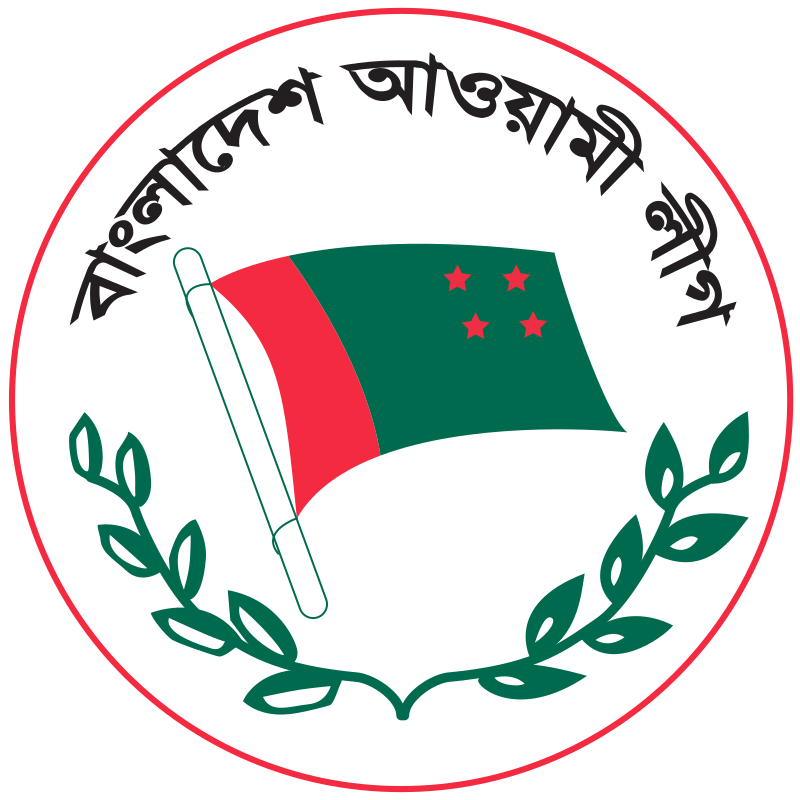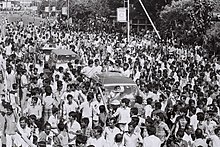The history of Bangladesh Awami League traces back to its founding and subsequent development over time, gradually gaining support among the Bengalis. As a political party in Bangladesh, Awami League has played a significant role in shaping the country’s political landscape.
From its inception, Awami League has been committed to advocating for the rights and interests of the common people, with “Awami” meaning “of the people” in Urdu. The party’s ideology and policies have garnered support from various segments of society, positioning it as a prominent force in Bangladeshi politics.
With a rich history and a strong presence, Bangladesh Awami League continues to be a major player in the country’s political arena.

Credit: www.britannica.com
Birth Of A Movement
The birth of Bangladesh Awami League marked the emergence of a significant movement that has played a pivotal role in shaping the political landscape of Bangladesh. The founding of this influential political party laid the foundation for a vision that aimed to champion the rights and aspirations of the common people.
Founding Fathers
The Bangladesh Awami League was founded by Sheikh Mujibur Rahman, a visionary leader who was deeply committed to the welfare and empowerment of the people of East Pakistan, as Bangladesh was known at the time. Alongside him, other prominent figures such as Huseyn Shaheed Suhrawardy, A. K. Fazlul Huq, and Abdul Hamid Khan Bhashani played instrumental roles in establishing this influential political entity.
Awami League’s Original Vision
From its inception, the Awami League was driven by a profound vision that prioritized the interests of the common people. The party aimed to promote social justice, economic empowerment, and the rights of the Bengali-speaking population in East Pakistan. Its original vision was rooted in the principles of democracy, secularism, and inclusivity, striving to create a society where every individual had the opportunity to thrive and prosper.

Credit: albd.org
Evolving Ideologies
The history of Bangladesh Awami League reflects evolving ideologies and the party’s role in shaping the nation’s political landscape. From its founding to present events, the party has been instrumental in advocating for the rights of the Bengali people and contributing to the country’s development.
From East Pakistan To Bangladesh
The Bangladesh Awami League, founded in 1949, played a pivotal role in the country’s history, particularly during the period leading to the Liberation War of 1971. The party’s journey from being part of East Pakistan to the establishment of an independent Bangladesh reflects its evolving ideologies.
The party’s initial focus on the rights and autonomy of East Pakistan gradually transformed into a movement for the independence of Bangladesh. This shift in ideology marked a significant turning point in the history of the Bangladesh Awami League.
The Shift Towards Secularism
One of the defining features of the Bangladesh Awami League’s evolving ideologies was its shift towards secularism. This shift was evident in the party’s vision for a democratic and inclusive society, where people of all religious and ethnic backgrounds could coexist peacefully.
The party’s commitment to secular principles became a cornerstone of its ideology, reflecting the aspirations of the people of Bangladesh for a society based on equality and social justice.
Landmarks In Political Activism
The history of Bangladesh Awami League is a significant landmark in political activism, playing a pivotal role in the country’s struggle for independence and subsequent democratic governance. Founded in 1949, the party has been at the forefront of various political movements and has produced notable leaders who have shaped the nation’s political landscape.
Bangladesh Awami League is a political party that has played a significant role in shaping the history of Bangladesh. The party has been at the forefront of various political movements that have defined the country’s political landscape. In this article, we will explore the history of Bangladesh Awami League, with a particular focus on the landmarks in political activism that the party has been involved in.
The Language Movement
The Language Movement was a significant political movement in East Pakistan (present-day Bangladesh) that took place in 1952. It was a movement against the imposition of Urdu as the sole official language of Pakistan. The movement was led by students and intellectuals who believed that Bengali should also be recognized as an official language. The movement culminated in the recognition of Bengali as an official language of Pakistan in 1956. The Language Movement was a defining moment in the history of Bangladesh Awami League and set the tone for the party’s future political activism.
The Six-point Movement
The Six-Point Movement was a political movement launched by Bangladesh Awami League in 1966. The movement was a demand for greater autonomy for East Pakistan, which was being treated unfairly by the central government in West Pakistan. The Six-Point Movement demanded six specific points, which included the establishment of a federal government, the right to maintain a separate militia, and control over regional taxation. The movement ultimately led to the independence of Bangladesh in 1971 and the establishment of a separate state for Bengalis. The Six-Point Movement is considered one of the most significant landmarks in the history of Bangladesh Awami League.

Credit: en.wikipedia.org
The Road To Independence
The history of Bangladesh Awami League is closely intertwined with the country’s struggle for independence. From its formation to its role in the 1970 election triumph and the subsequent Liberation War of 1971, the party played a significant role in shaping the destiny of Bangladesh.
1970 Election Triumph
In 1970, the Awami League achieved a historic victory in the general elections of Pakistan. Led by the charismatic leader Sheikh Mujibur Rahman, the party secured an overwhelming majority in the eastern wing of the country, which was later to become Bangladesh.
This election victory was a watershed moment in the history of Bangladesh, as it marked a turning point in the Bengali nationalist movement and set the stage for the country’s eventual independence.
The Liberation War Of 1971
Following the controversial postponement of the National Assembly session in March 1971, tensions between West Pakistan and East Pakistan escalated rapidly. The Awami League, representing the aspirations of the Bengali people, took a leading role in the movement for independence.
The party played a crucial role in organizing mass protests and advocating for the rights of the Bengali population. However, the Pakistani military junta responded with brutal force, leading to widespread atrocities and human rights abuses.
In response to the escalating violence, Sheikh Mujibur Rahman declared the independence of Bangladesh on March 26, 1971. This marked the beginning of the Liberation War, a nine-month-long struggle for freedom and self-determination.
The Awami League, along with other nationalist forces, formed the Mukti Bahini (Freedom Fighters) to fight against the Pakistani military. The party provided leadership, organizational support, and a clear vision for an independent Bangladesh.
After a long and arduous struggle, the Liberation War came to an end on December 16, 1971, with the surrender of the Pakistani forces. Bangladesh emerged as a sovereign nation, and the Awami League played a pivotal role in shaping the country’s future.
Through its leadership and unwavering commitment to the cause of independence, the Awami League left an indelible mark on the history of Bangladesh.
In conclusion, the road to independence for Bangladesh was paved by the efforts and sacrifices of the Awami League. From the 1970 election triumph to the Liberation War of 1971, the party played a vital role in shaping the destiny of the nation.
Post-independence Challenges
Following Bangladesh’s independence, the Awami League faced numerous challenges, including rebuilding the war-torn nation, establishing governance, and addressing economic hardships. Despite these obstacles, the party worked tirelessly to lead the country towards progress and development.
Post-Independence Challenges After gaining independence in 1971, Bangladesh faced numerous challenges, including nation-building, economic reforms, and political stability. The newly formed Awami League government had to start from scratch to rebuild the nation after the devastating war. Nation Building The Awami League government focused on rebuilding the nation by prioritizing infrastructure development, education, and healthcare. The government invested heavily in building roads, bridges, and other essential infrastructure to connect the remote areas of the country. They also established numerous schools and hospitals to provide education and healthcare to the citizens. Economic Reforms and Challenges Bangladesh faced significant economic challenges in the post-independence period. The country had a weak and underdeveloped economy, which was heavily dependent on agriculture. The Awami League government implemented various economic reforms to boost the economy, including nationalizing major industries, implementing land reforms, and introducing a new currency. However, the country still faced significant economic challenges, including high inflation, low foreign investment, and a lack of skilled human resources. To combat these challenges, the government introduced policies to promote exports, attract foreign investment, and develop human resources. The government also established various economic zones and provided incentives for foreign investors to set up businesses in the country. In conclusion, the Awami League government faced numerous challenges in the post-independence period, including nation-building, economic reforms, and political stability. Despite these challenges, the government made significant progress in rebuilding the nation and promoting economic growth. The policies implemented by the government laid the foundation for the country’s development and set the stage for Bangladesh’s emergence as a growing economy in the region.Political Ups And Downs
The history of Bangladesh Awami League is filled with political ups and downs. From its founding, it gradually evolved and played a significant role in shaping the political landscape of Bangladesh. With a focus on the interests of the common people, Awami League has become a prominent political party in the country.
Political Ups and Downs of Bangladesh Awami League The Bangladesh Awami League has a long and complex history, marked by numerous political ups and downs. One such event was the military coups, which saw the party being banned in 1975. However, with the return to democracy in 1991, Awami League once again emerged as a significant political force in Bangladesh. Military Coups In 1975, the Bangladesh Awami League was banned after the assassination of the country’s founding father, Sheikh Mujibur Rahman. The military took control of the government, and the party’s leaders were either killed or imprisoned. The political unrest continued for several years, and the party remained in the political wilderness until the late 1980s. Return to Democracy The return to democracy in 1991 saw the Awami League emerge as a significant political force once again. In the subsequent elections, the party won a landslide victory, and its leader, Sheikh Hasina, became the Prime Minister of Bangladesh. The party’s popularity continued to grow in the following years, and it won the next two general elections in 1996 and 2008. Despite these successes, the party has also faced significant challenges in recent years. The 2014 elections were boycotted by the opposition, and the Awami League won an uncontested victory. The party has also faced criticism over its handling of human rights issues and political dissent. Conclusion The history of the Bangladesh Awami League is one of political ups and downs. The party has experienced significant setbacks, such as the military coups of 1975, but has also enjoyed periods of considerable success. Despite the challenges it has faced, the Awami League remains a significant political force in Bangladesh, with a strong base of support among the country’s people.Awami League In The 21st Century
The Awami League, one of the oldest and most influential political parties in Bangladesh, has undergone significant changes and developments in the 21st century. This period has witnessed the modernization and reform of the party, as well as the strengthening of its international relations.
Modernization And Reform
The Awami League has embraced modernization and reform as key elements of its strategy for success in the 21st century. The party has recognized the need to adapt to the changing political landscape and the evolving needs and aspirations of the people of Bangladesh. Through a series of internal reforms, the Awami League has aimed to enhance its organizational structure, improve governance, and foster transparency and accountability.
These reforms have included the introduction of new technologies for communication and outreach, such as social media platforms and digital campaigning. The party has also focused on empowering the youth and women, encouraging their active participation in politics and decision-making processes. By embracing these modernization efforts, the Awami League has demonstrated its commitment to staying relevant and responsive to the demands of the 21st-century electorate.
International Relations
The Awami League has placed a strong emphasis on strengthening its international relations in the 21st century. The party recognizes the importance of global partnerships and collaborations in advancing the interests of Bangladesh and its people on the international stage.
Under the leadership of the Awami League, Bangladesh has actively pursued diplomatic engagements with various countries and international organizations. This has resulted in increased foreign direct investment, trade opportunities, and development assistance for the country. The party has also played a significant role in shaping regional cooperation initiatives, such as the South Asian Association for Regional Cooperation (SAARC) and the Bay of Bengal Initiative for Multi-Sectoral Technical and Economic Cooperation (BIMSTEC).
Furthermore, the Awami League has been vocal in advocating for the rights of the Bangladeshi diaspora and has actively engaged with the international community on issues of migration, human rights, and climate change. By prioritizing international relations, the Awami League has positioned Bangladesh as a respected global player and has sought to secure the country’s interests in an increasingly interconnected world.
In conclusion, the Awami League has embraced modernization, reform, and international engagement in the 21st century. Through these strategic initiatives, the party has aimed to strengthen its position as a progressive and forward-thinking political force in Bangladesh, while also advancing the interests of the country and its people on the global stage.
Legacy And Future Prospects
The Bangladesh Awami League has a rich history and promising future prospects. As one of the leading political parties in Bangladesh, it has played a significant role in the country’s development and has been instrumental in promoting the interests of the common people.
With its strong ideology and policies, the Awami League continues to shape the political landscape of Bangladesh.
Cultural Impact
Bangladesh Awami League has a rich history that has had a significant impact on the country’s cultural development. The party played a crucial role in the Bengali Language Movement, which was a movement to recognize Bengali as an official language in East Pakistan. The movement eventually led to the recognition of Bengali as a state language in Pakistan. Awami League’s contribution to the movement has been instrumental in shaping the cultural identity of Bangladesh. The party also played a crucial role in the country’s independence movement and continues to celebrate its cultural heritage by organizing cultural events and festivals regularly.Vision For The Future
Bangladesh Awami League has a clear vision for the future of the country. The party’s vision is to create a prosperous and democratic Bangladesh that is free from corruption and poverty. The party is committed to creating an inclusive society where everyone has equal opportunities to succeed. Awami League has implemented several policies and initiatives to achieve its vision, including poverty alleviation programs, infrastructure development, and education reforms. The party’s commitment to the country’s development and progress is evident in its policies and initiatives. In conclusion, Bangladesh Awami League has a rich legacy and a bright future. The party’s cultural impact and vision for the future have made it one of the most influential political parties in Bangladesh. Awami League has played a crucial role in shaping the country’s cultural identity and has implemented several policies to improve the lives of its citizens. As the party continues to evolve and adapt to the changing needs of the country, it is poised to lead Bangladesh towards a bright and prosperous future.Frequently Asked Questions
Who Was The Founder Member Of Awami League?
The founder member of Awami League was Sheikh Mujibur Rahman.
What Is The Meaning Of The Word Awami?
The word “Awami” in Urdu language is the adjectival form for “Awam,” which means common people. It is used in various proper names such as Awami Colony in Karachi, Pakistan.
What Happened In 1957 In Bangladesh?
In 1957, Bangladesh became a part of Pakistan after gaining independence from British rule.
What Is The History Of The Emergence Of Bangladesh?
Bangladesh emerged as an independent nation in 1971 after a war of independence from Pakistan. The struggle was led by the Awami League, and the country became known as Bangladesh.
Conclusion
To conclude, the history of Bangladesh Awami League is a testament to the resilience and determination of the Bengali people. From its founding, the party has played a crucial role in shaping the political landscape of Bangladesh. It has championed the rights of the common people and fought for the country’s independence.
Over the years, Bangladesh Awami League has evolved and adapted to the changing needs of the nation, solidifying its position as a prominent political force. Its journey is a reflection of the aspirations and struggles of the Bengali people, and its legacy will continue to inspire future generations.

